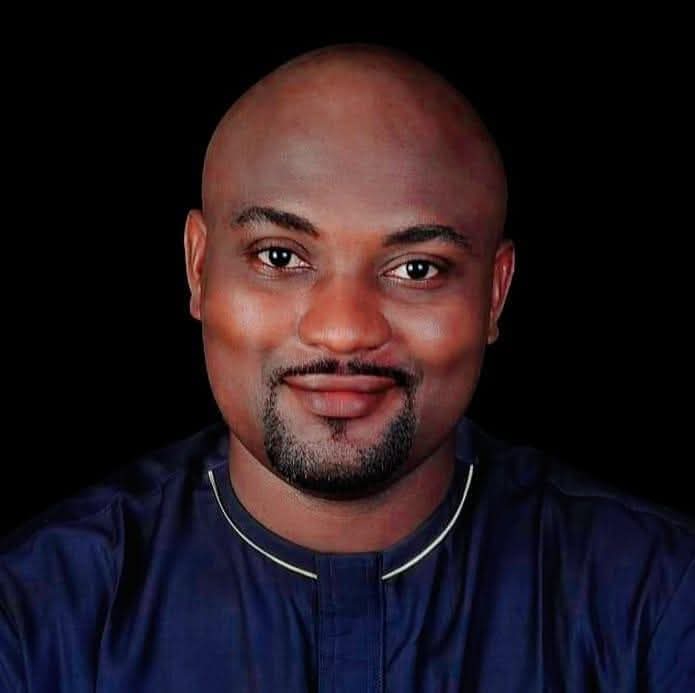By Sam Ijoho
In Nigeria’s Fourth Republic, the People’s Democratic Party (PDP) once towered above all as the colossus of politics. For sixteen unbroken years – from 1999 to 2015 – it dominated the national scene, held sway in easily all geopolitical zones, and projected itself as the most formidable political force in Sub-Saharan Africa. But today, the same party stands confused, disjointed, and dangerously adrift, living in denial, struggling with their current realities, unable to define itself either as a credible opposition political party or a reawakening alternative.
Its predicament is not merely the result of losing federal power – it is the consequence of years of unchecked indulgence, lack of ideological grounding, and internal decay.
When parties rise to power without a coherent philosophy and sustainable structure, they risk collapsing under the weight of unearned comfort. That, unfortunately, is the story of the PDP.
A Party Pampered by Power:
The PDP was built on the back of alliances and political marriages of convenience, not on shared convictions or grounded principles. While this pragmatism worked in securing victories, it did little to build a resilient institution. Instead of investing in a long-term strategic framework, policy platforms, or grassroots political education, the party relied heavily on incumbency, patronage networks, and federal might.
Over time, this created a culture of entitlement, where loyalty was transactional, and leadership was recycled among a narrow elite. There was no hunger to innovate or reform. Power became an end in itself – not a platform for service or nation-building. So when defeat eventually came in 2015, the PDP was like a pampered giant suddenly forced to walk without crutches – and it stumbled.
The Opposition that Never Was:
Since its fall from power, the PDP has shown little evidence that it understands the responsibilities of a modern opposition political party. Nigeria’s democracy demands more than ballot-box contests – it requires political parties that can offer ideological alternatives, interrogate national policy with intellectual depth, and mobilize citizens with purpose.
Yet the PDP’s post-2015 performance has been lackluster. Where is the structured opposition to the ruling party’s controversial decisions? Where are the policy alternatives, the shadow cabinets, or the sustained public campaigns on critical issues such as education, security, youth employment, taxes, foreign trades and economic policy?
Instead, what we see is a party consumed by internal wrangling, public embarrassments, and defections. It lurches from one crisis to another; zonal disagreements, parallel state excos, fake primaries, suspended chairmen, and endless court battles. The few voices that do speak up often do so without coordination, credibility, or consistency.
Structural Deficiency and Ideological Bankruptcy:
At its core, the PDP suffers from institutional weakness. It has no clear ideological leaning. Is it pro-market? Pro-labour? Centre-left? Federalist? No one can say. This lack of identity has made the party malleable and incoherent. It has become a platform for desperate politicians seeking tickets – not for reformers, thinkers, or emerging leaders with a plan for Nigeria.
Moreover, the party has failed to build an intellectual base. While modern political parties around the world invest in think tanks, research institutes, data analytics, and communications strategy, the PDP seems stuck in the analog era. No real-time responses to national policy. No coordinated digital mobilization. No evidence of youth inclusion beyond tokenism.
In a country where over 60% of the population is under 35, the PDP’s inability to engage youth effectively is not just a weakness, it is political suicide.
A Nation in Need of Opposition:
Nigeria’s democracy is in urgent need of balance. The concentration of power in the centre, absence of credible opposition, and weakening of democratic institutions are dangerous signs. Democracy cannot thrive where there is no dissent, no accountability, and no competitive contestation of ideas.
It is not just about winning elections. A strong opposition is a democratic necessity. It sharpens national debate, protects civil liberties, and provides the checks that prevent abuse of power. When opposition fails, the government grows unchecked, and the people suffer.
A Roadmap for Redemption:
For the PDP (or any aspiring opposition) to be taken seriously again, a radical transformation is required. Below is a practical roadmap:
1. Ideological Rebirth: The party must define what it stands for and why it exists. Nigerians want to follow a cause, not just a candidate.
2. Leadership Renewal: Enough of recycling yesterday’s politicians. Let the party nurture a new crop of credible, intelligent, and dynamic young leaders.
3. Institutional Reform: Internal democracy must be entrenched. Impunity, godfatherism, and opaque processes must give way to merit and transparency.
4. Policy Depth: Set up internal think tanks and a shadow cabinet to propose and defend alternatives on national issues. Opposition must be intellectual, not just emotional.
5. Digital and Grassroots Engagement: Modern politics happens online and offline. The party must invest in tech-savvy strategies while reconnecting with real people at the grassroots.
6. National Dialogue and Reconciliation: The party must heal its internal divisions and return as a united, purpose-driven platform.
Conclusion:
There is still time for all the opposition political parties, especially the PDP, to reinvent themselves. History is full of examples – political parties that bounced back after electoral defeat by embracing reform, vision, and discipline. But time is running out. Every day of confusion chips away at the party’s relevance.
Ultimately, this is not just about one political party. This is about the future of opposition politics in Nigeria. If the PDP cannot rise to the occasion, another platform should, and must, emerge. Democracy cannot wait forever.
Wake Up or Fade Out
About the Author:
Hon. (Dr.) Msonter Samuel Ijoho is a political enthusiast, business development and agribusiness consultant, and public affairs commentator. He writes regularly on governance, agribusiness, youth development, and institutional reform in Nigeria.



